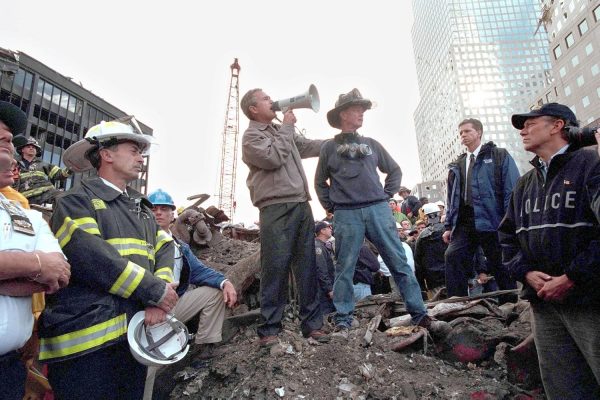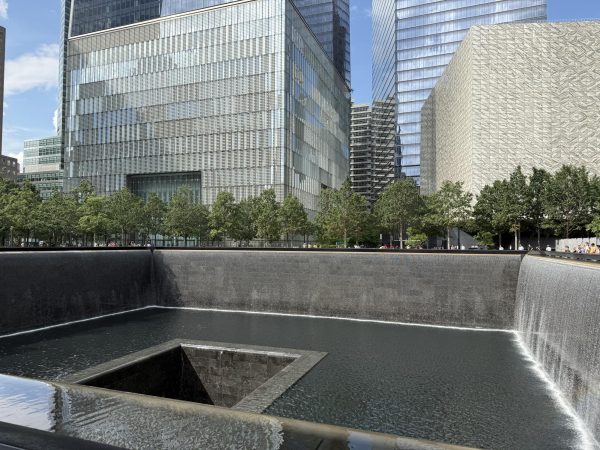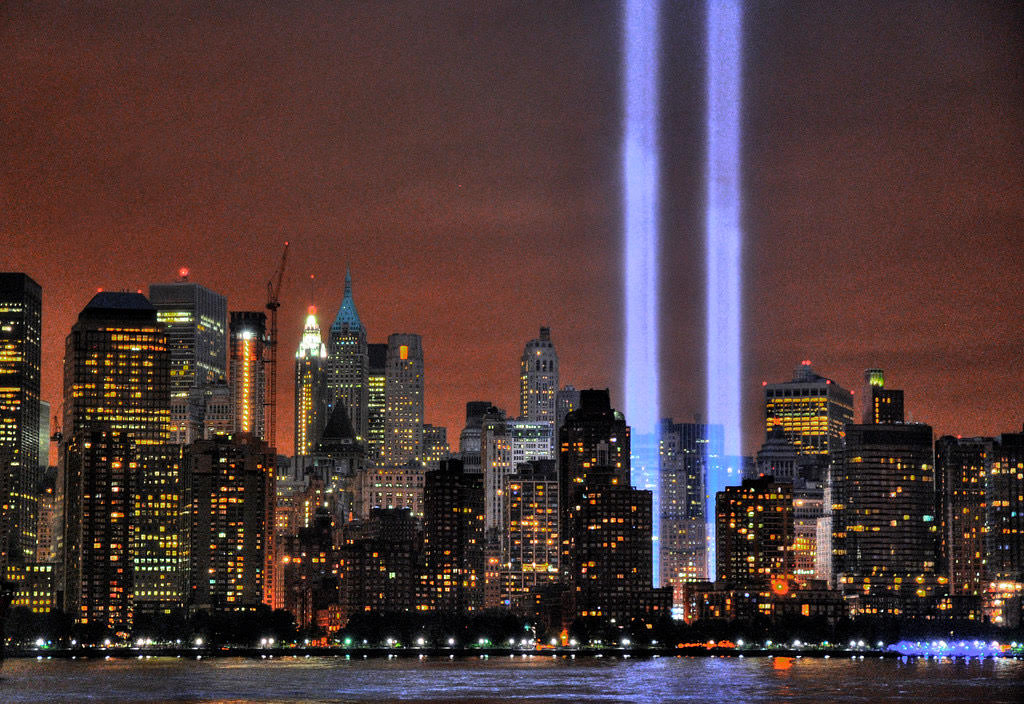Everyone knows the story. A Tuesday morning, so impossibly clear, the sky above Manhattan a brittle blue, as if daring the world to forget what it was about to witness. The first plane carved a wound into the North Tower; the second confirmed it was no accident. Smoke poured like ink from the pages of a future no one wanted to read. Papers fluttered down like ash-blown leaves, but there were bodies too—falling, leaping, vanishing. On the ground, silence gave way to sirens, The towers folded inward. Concrete became dust. Steel buckled like paper. Time split at the seams.

Days later, President Bush stood atop the wreckage with a bullhorn, the dusty air thick with an appetite for retribution. “I can hear you,” he shouted. Congress had nearly unanimously approved the invasion of Afghanistan. The Patriot Act passed in a hush of urgency, its clauses unread, its consequences still echoing. Surveillance metastasized. Airports became rituals of suspicion. Televisions which once delivered laugh tracks and late shows now fed households a steady diet of fire and falling bodies, turning trauma into programming. The Department of Homeland Security rose from the rubble, and with it, a new kind of fear. All these moments are grossly ingrained into the minds of those who grew up alongside these events…and also myself. But one must ask, why would I care so much about an event that happened in an time before I was even aware of my surroundings?
On that September morning, my father—then not much older than I am now—was on his way to his modest job as a waiter at an upscale restaurant owned by a celebrity chef. Cramped alongside other New York City denizens on the 4 train, he was suddenly plunged into darkness as the subway screeched to a halt—freezing, for a moment, the relentless hustle of a city that never stopped moving. Nearly an hour later, passengers were released from the stalled train. One after another, they made haste in front of a local RadioShack, looming over television sets that were displaying news coverage of the day’s events behind the store windows. They were attempting to put together a seemingly impossible puzzle. My dad—along with thousands of others—embarked on a miles-long trek to the Bronx from Manhattan, eventually reaching the small apartment he shared with several friends.
As the still-fresh wounds from the creation of the country were still healing, my father emigrated from Bangladesh to the United States at the young age of 12. Being of the Muslim faith and blooming with caramel-colored skin, he was ripe for the picking of discrimination in the wake of the attacks that day. In 2008—almost seven years to the day after the attacks unfolded—I was born in the midst of a post-9/11 world.
I never witnessed the towers collapsing. I was never alive when the One World Trade Center first broke ground. I wasn’t even in school yet when President Obama announced to the world that Osama Bin Laden had been killed. Yet, as a New Yorker first and foremost, I feel compelled to reflect on that day–not only in history, but in shaping who I am.
Reflective pool at the World Trade Center memorial, taken by author.

There is no denying the fact that the families and friends of victims still feel the magnitude of their losses today. No words I write could ever begin to scratch the surface of fully describing the scope of the tragedy. But the butterfly effect still persists.
The pain felt by a young Afghan boy watching his father die in front of him. The hundreds of firefighters battling cancer after being exposed to the toxic debris at Ground Zero. A catastrophe so vast, its aftershocks continue to ripple across the globe.
Don’t forget the victims. Don’t forget the enduring humanity that persisted that day. Don’t forget the Middle Eastern nations ravaged in the aftermath. It’s a stark, nuanced reminder of the nature of humanity itself. And yet, it tells us something else too: that yes, it is possible to move forward—while still remembering what we’ve experienced, and what came before us.
When people say “never forget,” this is what they mean.

